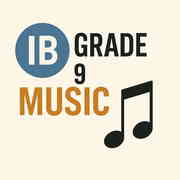Professional Courses
Industry-relevant training in Business, Technology, and Design
Categories
Interactive Games
Fun games to boost memory, math, typing, and English skills
Typing
Memory
Math
English Adventures
Knowledge

IB 9 Music
Music profoundly influences and reflects human society, acting as a universal language that evokes emotions, shapes identities, and serves as a tool for social change. The chapter explores how music impacts individual experiences and collective cultures through various dimensions, including emotion, media, identity, and the music industry. It highlights the intricate connections between music, ethics, and technology in the modern landscape.
4 Chapters
30 hr
We're sorry, but this course is currently unavailable. It may have expired, be pending
approval, or still be processing
your enrollment. Please check back later or contact your instructor or support for
assistance.
